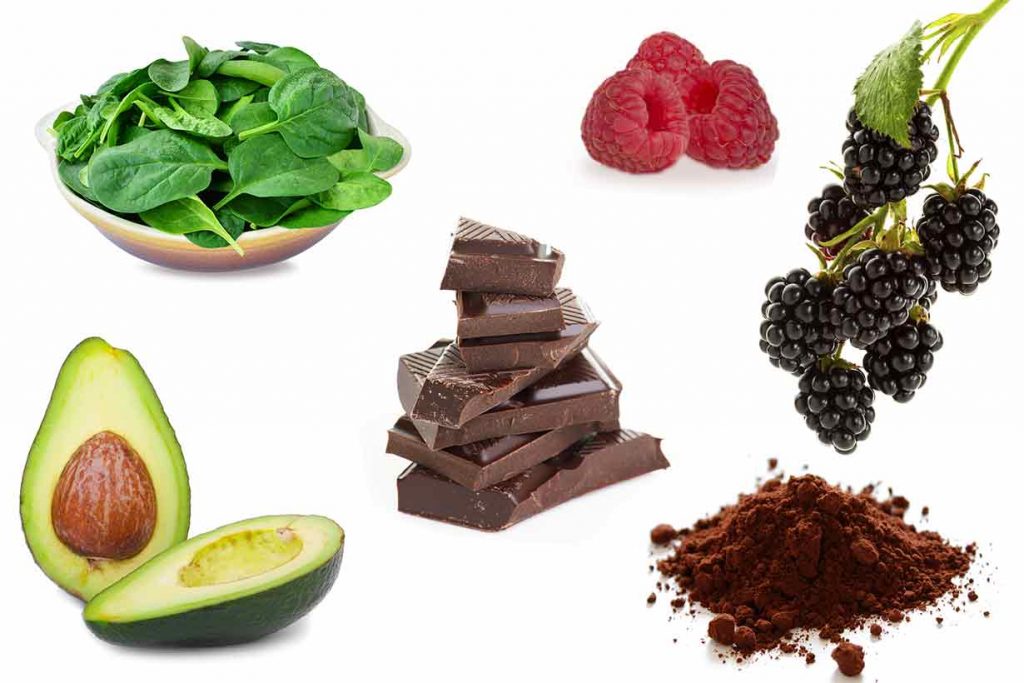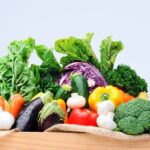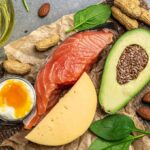15 Low-Carb Foods High in Fiber
Some people find dietary success with a low-carb diet. However, a common myth about these diets is that they lack fiber due to the relative absence of plant-based foods.
This does not have to be the case.
While many people associate whole grains with fiber, a wide variety of low-carb foods are rich in fiber, and many of them fit well into low-carbohydrate diets.
Additionally, since fiber is not broken down into glucose, foods with a higher proportion of fiber to total carbohydrates have a smaller impact on blood sugar levels (1).
For those following a low-carb diet who want to increase their fiber intake, this article provides a list of some of the highest-fiber foods that are also low in carbs.
For each food, you can see its fiber content, carbohydrate content, and the percentage of total carbohydrates that come from fiber.
All nutritional data has been sourced and calculated from the USDA’s FoodData Central database.
Highest-Fiber, Low-Carb Foods

The following high-fiber, low-carb foods are listed in descending order based on the amount of fiber they provide per common serving.
1. Avocado
A typical 201-gram avocado provides (2):
- Total carbohydrate: 17.1 g
- Fiber: 13.5 g
- Percentage of total carbohydrates from fiber: 79%
Most of the carbohydrate in an avocado comes from fiber, meaning only 3-4 grams are broken down into glucose.
2. Chia seeds
Chia seeds are little seeds packed with fiber yet relatively low in total carbohydrates.
An ounce (28.35-gram) serving of chia seeds provides (3):
- Total carbohydrate: 11.9 g
- Fiber: 9.75 g
- Percentage of total carbohydrates from fiber: 82%
With 82% of their carbohydrates coming from fiber, chia seeds are one of the best high-fiber, low-carb choices.
3. Raspberries
Along with blackberries, raspberries are among the most fiber-rich, low-carb fruits.
A 150-gram cup serving provides (4):
- Total carbohydrate: 19.4 g
- Fiber: 9.75 g
- Percentage of total carbohydrates from fiber: 50%
4. Edamame
Edamame, also known as fresh immature soybeans, is one of the lowest-carb legumes and a great fiber source.
A 160-gram cup of cooked edamame provides (5):
- Total carbohydrate: 13.8 g
- Fiber: 8.0 g
- Percentage of total carbohydrates from fiber: 58%
5. Blackberries
A 144-gram cup of blackberries provides (6):
- Total carbohydrate: 13.8 g
- Fiber: 7.63 g
- Percentage of total carbohydrates from fiber: 55%
Blackberries are relatively low in carbohydrates, with only 13.8 grams per cup serving.
More than half of the carbohydrates in blackberries come from fiber, making them a great low-carb fruit option.
6. Pecans
In addition to being a good source of healthy fats, nearly half of the carbohydrates in pecans come from fiber.
An ounce (28.35-gram) serving of pecans provides (7):
- Total carbohydrate: 12.7 g
- Fiber: 5.8 g
- Percentage of total carbohydrates from fiber: 46%
7. Flaxseed
The majority of the carbohydrates in flaxseed are fiber, making it an excellent low-carb option.
A two-tablespoon (20.6-gram) serving of flaxseed contains (8):
- Total carbohydrate: 5.96 g
- Fiber: 5.62 g
- Percentage of total carbohydrates from fiber: 94%
8. Collard greens
Collard greens are one of the most fiber-rich, low-carb-friendly vegetables.
A 130-gram cup of cooked collard greens provides (9):
- Total carbohydrate: 7.55 g
- Fiber: 5.59 g
- Percentage of total carbohydrates from fiber: 74%
9. Kale
Like other leafy greens, kale provides a good amount of fiber while remaining low in total carbohydrates.
A 118-gram cup of cooked kale contains (10):
- Total carbohydrate: 6.25 g
- Fiber: 4.72 g
- Percentage of total carbohydrates from fiber: 76%
10. Beet Greens
A 144-gram cup of cooked beet greens offers the following (11):
- Total carbohydrate: 7.86 g
- Fiber: 4.18 g
- Percentage of total carbohydrates from fiber: 53%
More than half of the carbohydrates in beet greens come from fiber, making them one of the most nutritious low-carb vegetables.
11. Cocoa powder
While most chocolate products are relatively high in carbohydrates due to added sugar, cocoa powder itself is very fiber-dense and consumed in small amounts.
A two-tablespoon (10-gram) serving provides (12):
- Total carbohydrate: 5.8 g
- Fiber: 3.7 g
- Percentage of total carbohydrates from fiber: 64%
12. Escarole
Escarole has one of the highest fiber-to-carbohydrate ratios among vegetables.
A 135-gram cup of cooked escarole provides (13):
- Total carbohydrate: 4.02 g
- Fiber: 3.64 g
- Percentage of total carbohydrates from fiber: 91%
13. Curry powder
In addition to being rich in vitamins and minerals, just a small serving of curry powder provides a significant amount of fiber.
Per tablespoon (6.3-gram) serving, it contains (14):
- Total carbohydrate: 3.52 g
- Fiber: 3.35 g
- Percentage of total carbohydrates from fiber: 95%
14. Coconut (dried, unsweetened)
Unsweetened dried coconut, also known as desiccated coconut, is a fiber-rich food.
A two-tablespoon (11.24-gram) serving provides (15):
- Total carbohydrate: 2.65 g
- Fiber: 1.83 g
- Percentage of total carbohydrates from fiber: 69%
Using coconut flour is another great way to increase fiber intake.
15. Poppy seeds
Poppy seeds may not be as well-known as other seeds, but they are both nutritious and an excellent low-carb source of fiber.
An 8.8-gram tablespoon serving contains (16):
- Total carbohydrate: 2.47 g
- Fiber: 1.72 g
- Percentage of total carbohydrates from fiber: 70%
Final Thoughts
For those wondering how to get fiber on a low-carb diet, this list highlights a variety of fiber-rich options, including fruits, nuts, vegetables, and seeds.
This demonstrates that low-carbohydrate diets don’t have to be “low-fiber” and can provide significant amounts of fiber with the right food choices.
For more low-carb fiber options, see this guide to psyllium husk.




